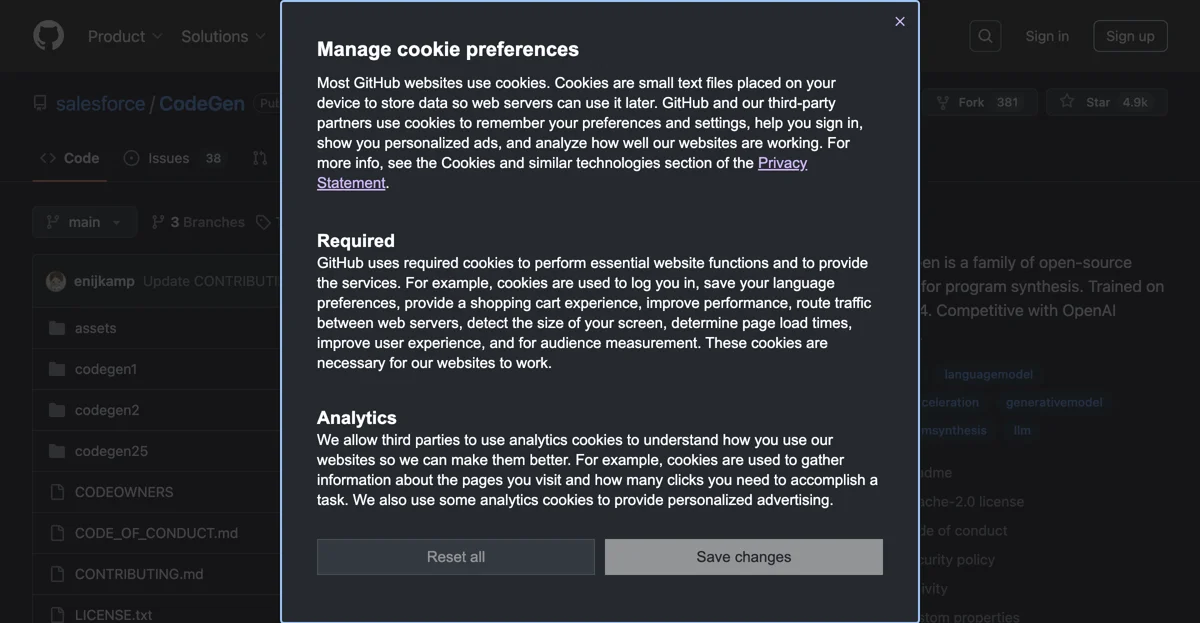salesforce/CodeGen: Revolutionizing Code Generation
salesforce/CodeGen is an open-source model for program synthesis that has been making waves in the field of artificial intelligence. Trained on TPU-v4, it offers a powerful solution for developers looking to streamline their coding processes.
This tool is not only competitive with OpenAI Codex but also comes with a range of features and capabilities that make it a valuable asset in the programming landscape. The CodeGen models, including CodeGen1.0, CodeGen2.0, and CodeGen2.5, are available on the Hugging Face Hub, providing easy access for users.
The usage of CodeGen is straightforward. With just a few lines of code, developers can import the necessary libraries and tokenizers to generate code based on their input. For example, to generate code for a function that prints 'hello world', the process is simple and efficient.
The Jaxformer library is also available for data pre-processing, training, and fine-tuning of the CodeGen models. This adds an extra layer of flexibility and customization for users who want to tailor the models to their specific needs.
In addition to its practical applications, CodeGen has also been the subject of several publications. The research behind it has contributed to the advancement of programming and natural language processing, making it a significant contribution to the field.
Overall, salesforce/CodeGen is a game-changer in the world of code generation, offering developers a powerful tool to enhance their productivity and creativity.

